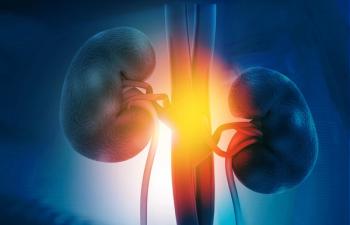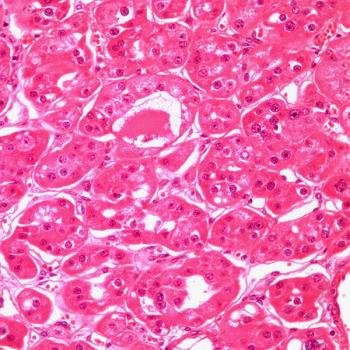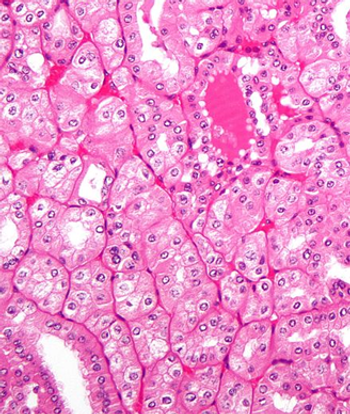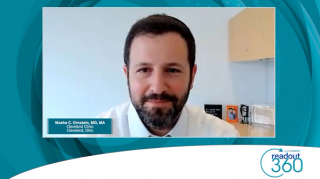
Kidney Cancer
Latest News

Latest Videos

CME Content
More News

Closing out their discussion on the management of metastatic renal cell carcinoma, panelists highlight the value of collaborative care in improving patient outcomes.

ALLO-316 has some “unique features” that may make it an “attractive” treatment option for those with kidney cancer, according to an expert from The University of Texas MD Anderson Cancer Center.

An expert from University Hospitals highlights different guidelines penned by oncology organizations informing the integrative management of symptoms including anxiety and depression in patients with kidney cancer.

Massage and acupuncture represent promising integrative care strategies for managing stress and pain in patients with kidney cancer and other tumors, according to an expert from University Hospitals.

Expert panelists share their perspective on novel and combination strategies being investigated in the setting of metastatic renal cell carcinoma.

Switching focus to a second clinical scenario, key opinion leaders on metastatic renal cell carcinoma discuss the treatment landscape for favorable-risk disease.

Farshid Sadeghi, MD, elaborates on improvements in minimally invasive surgery technique and the interdisciplinary cooperation that goes into treating kidney cancer.

Collaboration in kidney cancer palliative care and integrative medicine programs underscores the current development of University Hospitals’ integrative oncology wing.

The safety profile seen in the phase 3 CONTACT-03 trial, assessing cabozantinib and atezolizumab in advanced renal cell carcinoma, is consistent with previous findings.

Before closing out their review of the first clinical scenario, panelists consider the general state of prognoses within metastatic renal cell carcinoma.

A brief review of dose hold or adjustment strategies in the setting of metastatic renal cell carcinoma and when it is appropriate to consider these options.

Practical advice on the management of renal cell carcinoma provided for healthcare professionals, patients, and caregivers alike.

Shared insight on the treatment armamentarium for metastatic renal cell carcinoma and how these options should be communicated with patients.

Centering discussion on a clinical scenario of metastatic renal cell carcinoma, expert panelists reflect on optimal diagnosis and stratification methods in this setting.

Healthcare professionals reflect on recent evolutions in the renal cell carcinoma treatment landscape.

Panelists share their perspective on establishing a support network for patients undergoing treatment for renal cell carcinoma.

Santosh Rao, MD, discusses the formation of new guidelines informing the use of integrative oncology for patients with kidney cancer from the Society for Integrative Oncology.

Laura Sanza, PhD, MPAS, PA-C, leads a discussion on communicating adverse events with patients and mitigating potential toxicities.

A brief discussion elucidating the patient and caregiver perspectives when selecting a treatment option for renal cell carcinoma.

Data demonstrate the feasibility of automated glomerular filtration rate prediction to decide between partial nephrectomy and radical nephrectomy in kidney cancer, according to an expert from the Cleveland Clinic.

Comprehensive insight on how best to communicate potential adverse events and followup strategies with patients going on therapy for RCC.

Hans Hammers, MD, PhD, provides a broad overview on the treatment options available to patient who receive a diagnosis of renal cell carcinoma.

Kidney Cancer Association president Gretchen Vaughan discusses improvements being rolled out by the organization and the importance of multidisciplinary care.

Early phase trials investigating cellular therapies, bispecific antibodies, and antibody-drug conjugates for refractory kidney cancer may uncover strategies to overcome resistance mechanisms.

Increasing cancer antigen presentation as well as working with tumor cells in and delivering novel cells to the microenvironment may help in overcoming mechanisms of immune checkpoint inhibitor resistance in refractory renal cell carcinoma.










































